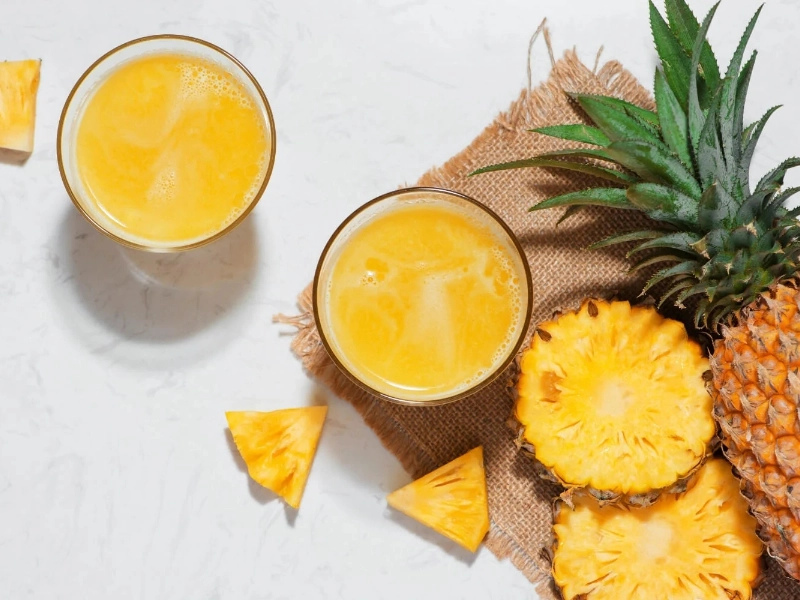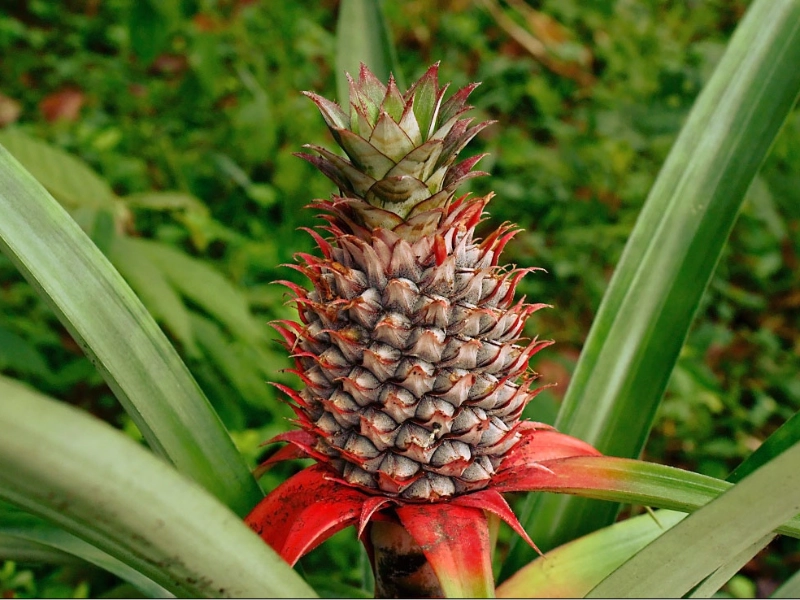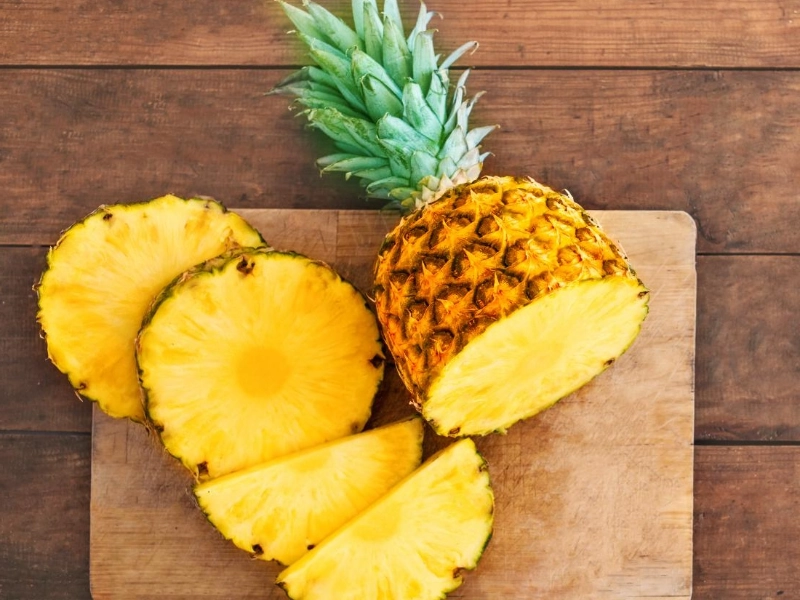Popular tropical fruit both fresh and frozen or canned is pineapple. It has various health advantages. Rich in bromelain, dietary fibre, and vitamin C, this delicious and juicy fruit is also It can lower eye disease risk, aid digestion, and strengthen immunity. It also helps relieve arthritic discomfort and shows anti-inflammatory action.

Antioxidants abound in pineapple, which helps fight oxidation—an unstable process that can harm cells and cause chronic inflammation, heart disease, diabetes, and cancer. Pineapples abound in vitamin C and manganese as well as phenolics and flavonoids. One cup of pineapple meets over ten percent of your daily vitamin C need. While aiding tissue development and repair and letting your body absorb iron, this nutrient is an antioxidant and shields your cells from free radical harm. Along with the protein-digesting enzyme bromelain, which could lower inflammation and hasten healing following a sinus infection or injury or help to counteract osteoarthritis's discomfort, pineapple also contains Medical News Today claims, meanwhile, that consuming too much bromelain might produce negative effects including diarrhoea, skin irritation, and in some cases excessively heavy menstrual bleeding. It can also interact with several drugs, including antibiotics, anticoagulants, blood thinners, sedatives and some varieties of antacids.

With only one cup, pineapple boasts about a third of your daily recommended dose of vitamin C. This strong antioxidant fights cancer, heart disease, arthritis, and promotes immunity and stimulates tissue development and healing.
Children who ate canned pineapple routinely exhibited less inflammation and more infection-fighting white immune cells in a nine-week research than those who eschewed this tropical fruit. This could be because bromelain from this tropical treat breaks down body protein, therefore reducing the inflammatory reaction and promoting white blood cell activity.
Moreover crucial for the synthesis of collagen, which keeps skin tight and flexible, is the vitamin C found in pineapple. Furthermore high in minerals like manganese, this luscious tropical fruit supports immune response and bone building. Although fresh, canned or dried pineapple is good for your health, bear in mind that too much potassium from this fruit can cause high blood pressure, particularly in those with kidney issues.
Manganese
 One good source of manganese, a mineral with antioxidant qualities and promotes metabolism and growth, are pineapples. They also include B vitamins—including thiamin, niacin, B6 and folate—as well as vitamin C, which is vital for immune system function and iron absorption. Pineapples also offer a good supply of fibre, which is vital for digestive health.
Improved Gastrointestinal Health
Studies point to reduced incidence of gastrointestinal discomfort among those who consume more pineapple. This could be the result of the fruit's bromelain, a combo of enzymes meant to ease digestion by breaking down protein.
Pineapples also include potassium, which controls blood pressure and helps ward against heart disease. It also contains beta-carotene, which might lower age-related macular degeneration risk.
Bromelain
One good source of manganese, a mineral with antioxidant qualities and promotes metabolism and growth, are pineapples. They also include B vitamins—including thiamin, niacin, B6 and folate—as well as vitamin C, which is vital for immune system function and iron absorption. Pineapples also offer a good supply of fibre, which is vital for digestive health.
Improved Gastrointestinal Health
Studies point to reduced incidence of gastrointestinal discomfort among those who consume more pineapple. This could be the result of the fruit's bromelain, a combo of enzymes meant to ease digestion by breaking down protein.
Pineapples also include potassium, which controls blood pressure and helps ward against heart disease. It also contains beta-carotene, which might lower age-related macular degeneration risk.
Bromelain
 Long used medicinally, the anti-inflammatory and protein-digesting enzyme bromelain is discovered in the stem and core of the pineapple Ananas comosus. It has been utilised for a range of uses by healers, including enhancing digestion, encouraging wound healing, treating dyspnoea and allergies or asthma, and so addressing indigestation. One test-tube investigation found that bromelain increases immune system response and accelerates the generation of white blood cells meant to combat infections.
Although additional research is required, several studies indicate that bromelain might stop some cancer cells from growing and might help prevent cancer overall. But, before using bromelain supplements, see your doctor since further human research is required.
Eating too much pineapple—or any other fruit or vegetable—may cause stomach trouble. Furthermore some people might be allergic to bromelain or pineapple. If you have an allergy, steer clear of pineapple and all products including the enzyme. Pineapple also naturally thins blood and can interfere with prescription drugs influencing blood clotting.
Long used medicinally, the anti-inflammatory and protein-digesting enzyme bromelain is discovered in the stem and core of the pineapple Ananas comosus. It has been utilised for a range of uses by healers, including enhancing digestion, encouraging wound healing, treating dyspnoea and allergies or asthma, and so addressing indigestation. One test-tube investigation found that bromelain increases immune system response and accelerates the generation of white blood cells meant to combat infections.
Although additional research is required, several studies indicate that bromelain might stop some cancer cells from growing and might help prevent cancer overall. But, before using bromelain supplements, see your doctor since further human research is required.
Eating too much pineapple—or any other fruit or vegetable—may cause stomach trouble. Furthermore some people might be allergic to bromelain or pineapple. If you have an allergy, steer clear of pineapple and all products including the enzyme. Pineapple also naturally thins blood and can interfere with prescription drugs influencing blood clotting.